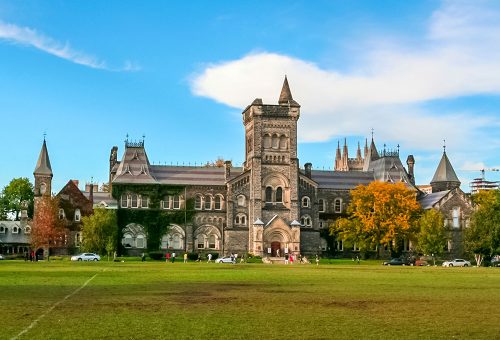
In Canada Education system is managed by the individual provinces and in view of national growth, the canadian government has made it mandatory to provide free public education up to and including secondary school levels. Post-secondary school education is available in different levels, primarily differentiated by the number of years of study involved before a particular qualification is achieved and awarded. These educational institutions are categorized as Community Colleges and Universities. Close to 200,000 students make it past the competitive entry requirements and earn opportunities to study in Canadian Universities. Here are some of the reasons that makes Canada a favorite go-to option for international students. A country that can boast of having over half the residents who are college graduates, is something that no other country has matched yet.
Canada is among the top countries in the world when it comes to per capita spending for post-secondary education and maintains excellent educational quality. In contrast, universities charge the lowest tuition fees among English speaking countries. Universities follow innovative teaching methods, bringing diverse perspectives to the classroom considering the diverse environment of students. They facilitate and provide ample impetus for research and innovations among their students. Safety and quality of life of the students are considered as being very important, mandatory Medical Insurance for students being an example. Highly regarded worldwide, Canadian degrees are platforms for that will lead to successful careers.
Flexible Interdisciplinary programs that students have freedom to choose from, on-the-job training opportunities through internships and excellent quality of education are highly appreciated by students from abroad. The variety of courses and programs in Canada are huge, ranging from humanities to health and technology and other distinctive environmental programs. Canada also provides an opportunity for experiencing their unique culture and friendly way of life. Snowshoeing through forests and color vibrancy of autumn leaves are a couple of attractions the country has to offer.
Different courses on offer in universities across Canada
- Certificate level programs, generally for a year
- Diploma level programs, generally one to two years
- Advanced Diploma programs, generally two to three years
- Bachelor’s degree programs, typically awarded after four years of full-time study
- Post Graduate Diploma / Certificate programs, for one or two years
- Master’s degree programs, available after graduation to excel in certain subjects.
- Doctorate or PhD programs, generally require four to seven years to complete


